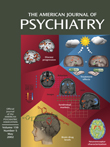To the Editor: We write to add commentary from the Food and Drug Administration’s (FDA’s) MedWatch database of adverse-event reports to the case report by William R. Yates, M.D., et al.
(1) of tramadol dependence in a patient with no past history of substance abuse. We note an honest but problematic inconsistency in the case report. Specifically, Dr. Yates et al. juxtaposed the statement “Tramadol is thought to have a low potential for abuse” (p. 964) and the results of a study on the frequency of abuse by Cicero et al.
(2): “less than one case per 100,000 exposures” (p. 964). Although the absolute incidence of dependence, withdrawal, or abuse associated with tramadol may be “low,” this case report highlights the dependence potential of this agent, as written in the approved product label: “[Tramadol] has the potential to cause psychic and physical dependence of the morphine-type (μ-opioid).”
Since tramadol’s initial marketing, from March 1995 through June 2001, the FDA has received 912 domestic adverse-event reports classified under the coding terms “drug dependence,” “drug withdrawal,” or “drug abuse” in association with tramadol. (The use of these terms is not based on DSM-IV criteria but taken from the reports themselves and so will vary by reporting clinician.) The distribution by adverse-event term is as follows: dependence: N=426, withdrawal: N=407, abuse: N=241 (the sum exceeds 912 since a report may have included more than one adverse-event term).
Most of these 912 reports included a history of drug/substance abuse. However, some reports specifically stated no such history, as in the case described by Dr. Yates et al. Additional reports described compelling clinical summaries that suggest, but do not state, that there was no past history of drug/substance abuse. (No percentages are presented because of the multiple possibilities afforded by differential report inclusion/exclusion criteria.)
The FDA receives an unknown fraction of the total true number of reports of adverse events attributed to drug products. In general, interest in the reporting of adverse events is usually highest in the early years of drug marketing (described as the “Weber effect”) and declines over time
(3). The FDA’s data for reports of dependence, withdrawal, or abuse of tramadol, by year of receipt (May 1995 through June 2001) (N=912) are as follows: a total of 30 in 1995, 285 in 1996, 149 in 1997, 28 in 1998, 170 in 1999, 91 in 2000, and 159 in 2001. Although reporting of adverse events associated with tramadol peaked in 1996, reporting continues through the present. Although adverse-event reporting is subject to numerous forces, including total exposed population and publicity of an adverse event, these reports also suggest that clinicians are still interested in (surprised by) cases of tramadol-associated abuse, dependence, or withdrawal, as in the case reported by Dr. Yates et al.
As stated in the current product label, tramadol is not recommended for patients with a history of drug abuse or dependence, as these patients are at high risk for abuse or dependence with tramadol. In addition, and of particular relevance to the issue raised by Dr. Yates et al., the recently revised (August 2001) approved product label for tramadol states that dependence and abuse, including drug-seeking behavior and taking illicit actions to obtain tramadol, are not limited to patients with a prior history of opioid dependence.
(The views expressed herein are those of the authors and do not necessarily represent those of the FDA nor imply its endorsement.)

